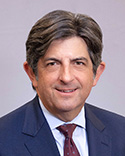Talc verdicts have recently dominated legal headlines, but in a win for defendants, a $117 million verdict was erased. On April 28, 2021, the New Jersey Appellate Division found that plaintiff's experts Jacqueline Moline M.D. and James S. Webber Ph.D. were improperly allowed to testify that nonasbestiform minerals can cause mesothelioma in Lanzo v. Cyprus Amax Minerals Company, et al., ___ A.2d. ___, 2021 WL 1652746 (2021). The appellate court reversed the trial court and remanded the case for new trials.
The expert testimony at issue relates to a critical issue in talc litigation―whether nonasbestiform minerals can cause mesothelioma. In Lanzo, the trial court denied the defendants' motions to preclude the plaintiff's experts' opinions and permitted those experts to testify that nonasbestiform cleavage fragments can cause mesothelioma. The trial court did not hold a Rule 104 hearing[1] or perform any analysis, nor did the trial court assess methodology or the underlying basis upon which the experts relied. Rather, the trial court set up a battle of the experts without performing its gatekeeping role because "'the asbestiform versus the non-asbestiform habit' was 'one of the central issues in these talc cases… .'"
However, the appellate court found this to be error―the trial court did not act as a gatekeeper of scientific evidence as required under the New Jersey Rules of Evidence 702[2] and 703[3] and the New Jersey Supreme Court's decision in In re Accutane Litigation, 234 N.J. 340, 191 A.3d 960 (2018).[4]
Under Accutane, to be admissible, an expert's causation testimony must be "based on a sound, adequately-founded scientific methodology involving data and information of the type reasonably relied on by experts in the scientific field." Accutane, 234 N.J. at 349-50. The trial court is the gatekeeper of expert witness testimony and must determine what testimony is reliable enough to be admissible based upon legal determination of the expert's methodology. "Properly exercised, the gatekeeping function prevents the jury's exposure to unsound science through the compelling voice of an expert." Id. at 389.
In Lanzo, Webber opined that there was no distinction between asbestiform and nonasbestiform fibers because "if it has the right morphological characteristics and mineralogical and chemical characteristics, it has the potential to cause disease." At trial, Webber admitted that he had not conducted and did not know of any studies showing that nonasbestiform cleavage fragments can cause mesothelioma.
On appeal, the court found that the authorities Webber purportedly relied upon did not support his conclusion and that Webber did not demonstrate that these authorities would be reasonably relied upon by others in his field to reach a causation opinion. The court further found that Webber's opinion had not been tested, had not been the subject of peer review or publication, and had not been proven as generally accepted in the scientific community.
The court also found Moline's opinion to be similarly flawed. Moline had claimed there was published scientific literature demonstrating that nonasbestiform amphibole minerals can cause mesothelioma, claiming elevated rates of mesothelioma in case study groups where individuals were exposed to nonasbestiform minerals. However, her report lacked citations to specific publications in support of her statements.
Having concluded that the trial court erred by allowing Webber and Moline to provide expert testimony that nonasbestiform minerals can cause mesothelioma, the appellate court determined that the mistaken rulings were "so wide off the mark that a manifest denial of justice resulted,"[5] therefore requiring new trials.[6]
Lanzo is significant for defendants in talc and other toxic tort litigation because it reinforces the importance of the court as a gatekeeper to preclude unsubstantiated opinions and unsupported "science." This is critical in cases where the jury is asked to determine causation of the plaintiff's disease. Further, this decision lays the foundation for courts around the country to preclude similar unsubstantiated opinions and theories on whether nonasbestiform minerals in talc can cause mesothelioma.
Michael L. Fox is a partner with Duane Morris LLP in San Francisco. He represents energy companies, chemical, equipment, and drug manufacturers, construction companies, and public entities in toxic tort, environmental release, general liability, serious personal injury, and commercial matters. He is the current Vice Chair of Communications for the IADC’s Toxic and Hazardous Substances Litigation Committee.
Alyson Walker Lotman is a partner with Duane Morris LLP in Philadelphia. She is a trial attorney, representing and advising clients in state and federal court, and serves as a team lead for the Duane Morris Transportation, Automotive and Logistics industry group. Ms. Lotman's practice is focused on products liability litigation, including mass tort, toxic tort, and pharmaceutical litigation, as well as personal injury defense litigation.
Notes
1. New Jersey Rule of Evidence 104, provides that the trial court "shall decide any preliminary question about whether a witness is qualified, a privilege exists, or evidence is admissible" and "may hear and determine such matters out of the presence or hearing of the jury."
2. Rule 702 states, "If scientific, technical, or other specialized knowledge will assist the trier of fact to understand the evidence or to determine a fact in issue, a witness qualified as an expert by knowledge, skill, experience, training, or education may testify thereto in the form of an opinion or otherwise."
3. Rule 703 states, "The facts or data in the particular case upon which an expert bases an opinion or inference may be those perceived by or made known to the expert at or before the proceeding. If of a type reasonably relied upon by experts in the particular field in forming opinions or inferences upon the subject, the facts or data need not be admissible in evidence."
4. In Accutane, the New Jersey Supreme Court (a) "perceive[d] little distinction between" New Jersey's principles regarding expert testimony and those established for federal courts in Daubert v. Merrell Dow Pharms., Inc., 509 U.S. 579 (1993); and (b) "reconcile[d] [New Jersey's] standard under N.J.R.E. 702, and relatedly N.J.R.E. 703, with the federal Daubert standard to incorporate its factors for civil cases." Accutane, 234 N.J at 347-348.
5. Rodriguez v. Wal-Mart Stores, Inc., 237 N.J. 36, 57, 203 A.3d 114 (2019) (quoting Griffin v. City of E. Orange, 225 N.J. 400, 413, 139 A.3d 16 (2016))
6. The appellate court also addressed an adverse inference instruction regarding the now-bankrupt talc supplier's alleged destruction of samples, which prejudiced a co-defendant and therefore required severed trials on remand.









